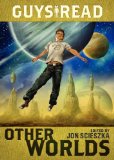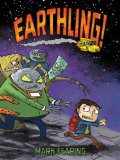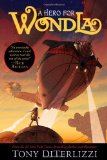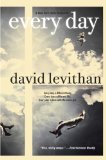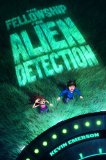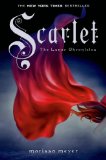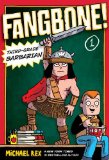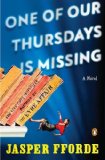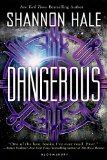 Dangerous
Dangerous
by Shannon Hale
Bloomsbury, New York, April 2014. 390 pages.
Starred Review
Okay, I can’t wait any longer to post this. The book won’t come out until April 2014, so I hope I’m not being mean by tantalizing other fans. I know I’ll read it again when the published version comes out. But I did exclaim all over Twitter and Facebook about snagging this review copy on the opening night of ALA Annual Conference, so I think I should tell people that I indeed liked the book very much, and they will want to watch for it.
It’s no secret that I’m biased by the love I already have for Shannon Hale’s other books. I knew I’d enjoy Dangerous, and indeed I did.
This is not, however, a fairy tale retelling or a contemporary romance. Dangerous is a science fiction thriller, completely different from anything Shannon Hale has written before.
Shannon Hale fans like me will of course want to read it, so I’ll try to describe it for others who just want to figure out if they want to read this particular science fiction thriller.
I love the heroine, Maisie Danger Brown. She’s not your typical vanilla-flavored main character. Her mother is from Paraguay, so her family is bilingual. And she’s missing her right hand, using a prosthesis, which she calls Ms. Pinch. Maisie fills out an application found in a cereal box and wins a trip to Astronaut Camp. Once there, she meets Jonathan Ingalls Wilder, son of a billionaire, and explains to him her middle name:
“My parents were going to name me after my deceased grandmothers — Maisie Amalia — then in the hospital, it occurred to them that the middle name Danger would be funny.”
“So you can literally say, Danger is my middle –”
“No! I mean, I avoid it. It’s too ridiculous. It’s not like anyone actually calls me Danger. Well, my mom sometimes calls me la Peligrosa, which is Spanish for Danger Girl. But it’s just a joke, or it’s meant to be. My parents have to work really hard to be funny. They’re scientists.”
This description fit with Maisie’s constantly punning father. (Just like mine!)
Space Camp ends up far more than a typical summer camp. The first sentence of the book is “Every superhero has an origin story.” Sure enough, at camp, Maisie gets a chance to go up in the Space Elevator to an orbiting asteroid, and there a piece of alien technology takes over her body, turning her into a super-inventor. Four other teens get embedded with technology, each having varying superpowers, all revolving around Jonathan, the Thinker. Maisie doesn’t know how much her thinking about Jonathan is because she fell for him before the incident, or if it’s because of the embedded alien technology.
And it’s a wild ride from there. I don’t want to say too much, but there are some deaths, and it becomes apparent that the remaining team members can take on the alien token from someone who dies. Maisie doesn’t know who to trust, and she’s afraid her family will be used to get to her. Things come to a showdown. Will Maisie be killed for her token, or will she have to kill her friend?
And that’s not even the end. There’s also the question of why aliens sent these tokens to earth. Yes, it turns out the fate of all humanity is at stake, and it’s not at all certain that the alien superpowers will be enough.
When the Space Camp story began, I thought this was going to be a kid-finds-out-alien-plot story, similar to The Fellowship for Alien Detection. But it quickly got to be a much bigger story. When it became apparent that alien technology was taking over some kids, I expected to roll my eyes at the science descriptions. That didn’t happen either. I’m not saying it was water-tight, but it never seemed blatantly impossible. And, wow, with the team members fighting each other, there were shades of The Hunger Games. We also had plots among different adult groups, trying to control the alien technology, and more of Maisie having to figure out who to trust. All that besides the aliens set to take over earth.
There’s also a delicately-done romance. I’m not sure I wouldn’t have preferred Maisie to end up with the other guy, but I can’t complain that it didn’t seem realistic. I loved Maisie’s thinking when they’re alone, and he’d like her to go farther.
He started to kiss me again, and I relented, kissing back. But his words haunted me — I can’t help myself, as if he were constrained to want me. I wanted him to choose me, not kiss me mindlessly. Even so, a part of me would give up any choice to just let things happen. And that shocked me. I’d decided long ago what I would do and would not do, and here at the first opportunity, I was tossing out reason for instinct. If I couldn’t make a decision using my brain, then was I even Maisie anymore? Better to ache with want than to become an illogical girl I didn’t know, I thought.
Now, I must admit that I’m probably never going to enjoy a science fiction thriller as much as a fairy tale retelling. If anything, I think maybe she’s packed a little too much into this book. I feel like I’ll have to read it again to grasp all that happened. I’m not sure if I quite believe all the alien stuff.
But I can safely say that I enjoyed this book more than any science fiction thriller I’ve ever read. The personal touch of knowing Maisie Danger Brown, la Peligrosa, girl who’s grown up with a missing hand – that made me want to travel with her through life-and-death fights, threats by aliens and humans, wild superhero stunts, and the need to save the world.
squeetus.com
Bloomsbury.com
Buy from Amazon.com
Find this review on Sonderbooks at: www.sonderbooks.com/Teens/dangerous.html
Disclosure: I am an Amazon Affiliate, and will earn a small percentage if you order a book on Amazon after clicking through from my site.
Source: This review is based on an Advance Reader Copy I got at ALA Annual Conference.
Disclaimer: I am a professional librarian, but I maintain my website and blogs on my own time. The views expressed are solely my own, and in no way represent the official views of my employer or of any committee or group of which I am part.
Please use the comments if you’ve read the book and want to discuss spoilers!
